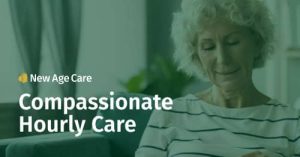When a loved one needs care, families often find themselves navigating unfamiliar territory under significant emotional stress.
Many turn to friends, colleagues, or the internet for advice, but with so much information available, it can be difficult to know what truly matters when choosing a home care provider.
One of the most critical aspects to consider is whether a care provider is regulated or unregulated. While cost is often a key factor in decision-making, comparing providers based on price alone can lead to overlooking essential safeguards that come with regulated care.
What Does It Mean to Be a Regulated Care Provider?
In England, the Care Quality Commission (CQC) regulates care services to ensure that providers meet strict quality and safety standards. Any company offering personal care, such as assistance with showering, dressing, continence, and medication - must be registered with the CQC and adhere to its guidelines.
CQC-regulated providers undergo regular inspections and must demonstrate compliance with core principles such as:
- Person-centred care – Tailored support that meets individual needs and preferences.
- Dignity and respect – Ensuring privacy and personal space.
- Safety – Protection from harm, abuse, or neglect.
- Qualified and experienced staff – Employing carers with appropriate skills and training.
- Complaint procedures – Clear avenues for addressing concerns.
What Is Unregulated Care?
Some companies offering home care services are not regulated by the CQC. These are typically introductory agencies that match clients with carers but do not employ them directly or oversee their work.
Unregulated care providers may offer services such as housekeeping, shopping, or companionship, which do not fall under CQC regulation. However, if they provide any form of personal care or nutritional support, they are legally required to be registered with the CQC.
Unlike regulated providers, unregulated care services:
- Do not have to meet CQC quality and safety standards.
- Do not conduct mandatory background checks (e.g., DBS checks) on carers.
- Do not provide structured training to ensure carers are competent.
- Do not offer management oversight, meaning families must handle issues such as pay, holiday cover, and performance concerns themselves.
Self-employed Carers
For a person to offer their services as a private carer, a carer should be able to manage medication, perform light household duties, provide personal care, meal planning and operating as part of person’s support system.
To work as a self-employed care worker, an Enhanced Disclosure and Barring Service (DBS) Certificate is required. This certificate proves that a person working as a carer does not have a criminal record and are not barred from working with vulnerable adults.
There is no legal requirement as a self-employed carer to hold specific training qualifications.
A self-employed carer should have a contract to agree and outline the service they will provide including:
- Hours.
- Pay.
- Responsibilities.
- Cancellation of services.
As well as contracts, they must have documented procedures for complaints, risk assessments, duty of care and safeguarding.
Insurance is vital to protect against potential risks as a self-employed individual. At a minimum, a person needs:
- Public liability insurance – protects against claims made by clients or the public for injuries or property damage caused by your work.
- Personal injury cover – ensures you're covered and viewed as possessing self-employed carer insurance, if you're unable to work due to an injury sustained while working.
A self-employed carer should check with their car insurance provider to ensure coverage for work-related travel.
The problem with self-employed carers who operate as sole traders is that they are not regulated by any organisations such as the CQC or the Council. This means people are putting their trust in a person to do the right thing. There is no one checking to see if self-employed carers are meeting any of the conditions outlined earlier. This means there is a real chance vulnerable people can be potentially can abused or even worse.
A self-employed carer does not need to keep up with changes in national care training modules such as medication, moving & handling or first aid, so they may not know what to do if something goes wrong. This puts the person receiving care in real danger from a duty of care perspective.
For example, if a self-employed carer does not know how to move someone safely, they could cause serious injury. Moving & handling can only be done using the correct techniques and equipment. There are too many self-employed carers out there who are ignoring guidance or are not aware, which is putting people in real danger.
To protect people self-employed carers should be providing their clients with a contract so people know what they are paying for. As it stands there is no regulation, and self-employed carers can take advantage of people they care for, especially financially. Regulation by the CQC has been put into in place by the UK government for a reason. It’s a way of ensuring that those who are vulnerable cannot be abused and are safeguarded. Unregulated care provides no protection.
When things go wrong, we don’t know when or how mistakes will happen. We are all human and people make mistakes. If self-employed carers do not have the relevant insurances such as car, public liability and personal injury, who pays the cost of these mistakes? Most people will find out when it’s too late, that the relevant cover may not be in place, and this may place a vulnerable person in financial hardship.
Why Choose a Regulated Provider?
Opting for a CQC-regulated provider ensures that your loved one receives care that is safe, professional, and properly managed. At New Age Care, we:
- Directly employ our carers, handling all payroll, insurance, and employment rights.
- Provide comprehensive training to ensure carers are well-equipped to meet clients’ needs.
- Conduct rigorous DBS and background checks to maintain high safety standards.
- Monitor and support our carers through regular supervisions, spot checks, and training updates.
- Have a designated CQC liaison to ensure compliance with all regulations and resolve any concerns promptly.
Making the Right Choice
While 44% of people surveyed stated that they did not prioritise CQC regulation when choosing a care provider, the reality is that regulation exists to protect vulnerable individuals. The peace of mind that comes with knowing a loved one is receiving professional, safe, and well-managed care is invaluable.
Before selecting a home care provider, always ask:
- Are they CQC-registered? (Ask for their latest CQC report.)
- Do they employ their carers directly or simply introduce them to you?
- What training and background checks do they conduct on carers?
- Who is responsible for paying, managing, and supervising the carers?
By choosing a regulated provider like New Age Care, you can ensure that your loved one receives the highest standard of care, delivered with dignity, professionalism, and compassion.
If you need help navigating your care options, contact us today on 0808 808 5000 to learn more about how we can support your family.






